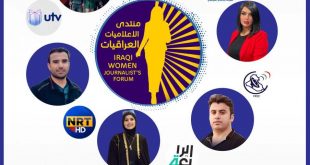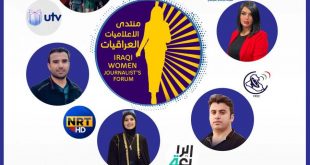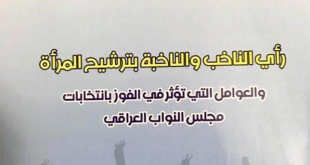DR. NIBRAS ALMAMORY
The crisis of Arab dictatorial political regimes in general and in Sudan in particular led to an increase in popular anger against the Sudanese president. In protest against the deteriorating economic conditions associated with the high prices of bread in Sudan at the end of 2018, the protests included 14 out of 18 states led to the fall of dozens of killed and wounded people.
The Sudanese president’s survival from previous popular anger prompted him to continue his dictatorial regime without indifference to what will result from the escalation of the tide of revolution and popular anger, and despite the performance of Bashir as the Supreme Commander of the armed forces, to make the scenario of the internal coup excluded, but the Crisis situation, increase the dispute inside existing regimes which led to many conflicts that sorted existing and Latent forces that consider in continuation of the regime with its disability is a threat for the regime itself. This is accompanied by the index of Sudan’s foreign relations and its international and regional alliances which have been in constant contradiction and fluctuating in their positions with the United States , and sometimes with Russia, through Iran and Saudi Arabia, as well as for the neighboring countries of Africa, and the position of those forces according to their interests.
The four-month protests against Bashir’s 30-year rule of a 40-million-population country led to thousands of protesters gathering in front of the presidential palace in Khartoum to express dismay at the situation and demand that the president step down through the opposition coalition of Sudan( Quwa Alijmaa and Nidaa Alsudan) to participate in the procession of the gathering of Sudanese professionals, and to hand over a memorandum to the Presidency emphasizing the main demand of the protesters and the president to step down from power, despite the pledge of the president to carry out economic reforms, but in the end was unable to find a way out of the crisis, especially when the Sudanese army come on the same line of protests to Support them.
Omar al-Bashir and the announcement of the Transitional Military Council
The sit-in of demonstrators for four consecutive nights in front of the Sudanese army headquarters hastened the entry of the army on the line and officially announce the Supreme Security Committee formed at the start of protests and sit-ins headed by the Minister of Defense and commissioned by the Sudanese President, whose task was to find solutions that satisfy the aspirations of the protesters, but finally they found that ALBASHIR regime has no real solution so, they decide to isolate him and announced on April 11, 2019, the defense minister ( Owad bin off) the head of the Transitional Military Council, which included the army and the security apparatus, the police and the rapid support forces, which have declined to participate in an attempt to calm the Sudanese street, which sees part of the participation of these forces in the management of the stage, raises concerns that what is happening is nothing but a “re-production of the rescue system,” especially that the rapid support forces formed by Bashir Years ago, from persons belonging to Arab tribes to face the armed movements that rose against him in the Darfur region, and accused by the International Criminal Court of war crimes in the region, and to reduce international pressure Bashir in recent years to be attached to the armed forces.
Observers believe that the step of the head of the rapid support forces (Madan Daklo) who known as (Hmidity) , of withdrawing from the Council is an attempt to dispel the concerns of the street and that what happened is not a coup. It is in response to the demands of the street protesting against the Bashir ruling. In contrast, others see this apology as a split inside the board!
“The rapid support forces reject any solutions that do not please the Sudanese people,” Daklo said in a statement. “The leaders of the Intifada (the leadership of the gathering of professionals, heads of parties and youth) have opened the door to dialogue and negotiation to reach solutions that satisfy the Sudanese people and spare the country from slipping. And chaos.
Statement of the Transitional Military Council: The Transitional Military Council immediately issued a statement of 22 points, including three axes,
the first internal included:
1- Forming a transitional military council to administer the country’s rule for a two-year interim period.
- Disruption of the Constitution of the Transitional Republic of Sudan for the year 2005.
3 – Declaration of a state of emergency for three months and a curfew for one month from 10 pm to 4 am.
4 – Close the airspace for 24 hours and the entrances and crossings throughout the Sudan until further notice.
5 – Dissolve the institution of the presidency, from deputies and assistants, and dissolve the National Council of Ministers to assign the deputies of ministries to conduct the work.
- Dissolution of the National Assembly and the Council of States.
- Resolving state governments and their legislative councils and entrusting governors and security committees with the performance of their duties.
- The normal functioning of the judiciary and its components, as well as the Constitutional Court and the Public Prosecutor’s Office.
9- Calling on those who carry weapons and armed movements “to join the homeland and contribute to its construction.”
10 – Preserving the public life of citizens without exclusion or assault or retaliation, or assault on official and personal property and maintenance of the offer and honor.
- Strict enforcement of public order, prevention of evasion and the fight against crime of all kinds.
- To declare a comprehensive ceasefire throughout the Sudan.
- Release all political prisoners immediately.
- To create a climate for the peaceful transfer of power, the building of political parties, the holding of free and fair elections at the end of the transitional period and the establishment of a permanent constitution for the country.
The second axis focused on foreign relations and pointed out
- To abide by all treaties, conventions and conventions in all their local, regional and international names.
- Continuation of the work of embassies, missions, diplomatic bodies and international organizations.
- Maintenance and dignity of human rights.
- Commitment to good-neighborly relations.
- To maintain balanced international relations, taking into account Sudan’s supreme interests and non-interference in the affairs of other States.
The last and third axis are the procedures and ensure:
Securing vital units, areas, bridges and places of worship.
Insurance and continuous work in facilities, communications, ports and air traffic.
Insurance services of all kinds.
The opposition rejects the military rule
The Sudanese opposition expressed its rejection of the military rule and demanded the handover of power to a civilian transitional government, threatening at the same time to continue the demonstrations until the demands of the popular movement are met. The spokesman (Satta’a Alhaj) for the national consensus forces announced that they reject any replacement of the military authority by another military authority that the demand of the revolution was to overthrow the regime of Omar al-Bashir with the final replacement of power by a civilian government.
Despite the announcement of the night curfew imposed by the army, thousands of demonstrators continued their sit-in on the evening of April 11 for the sixth night in front of the headquarters of the army’s general headquarters in Khartoum.
This prompted the rapid support forces to issue a statement through the social media network sites directed to the Intifada leaders (Leadership of the civilian population, Heads of parties and Youth leaders) to open the door to dialogue and negotiation to find solutions to satisfy the Sudanese people and spare the country chaos, but the continuation of sit-ins and protests led to the President of the Transitional Military Council resigned his resignation only one day after taking office, explaining in a speech broadcast on state television that resigned It came “the interests of the cohesion of the security system and the armed forces, from cracks and strife.”
In his first decision, the president of the new transitional council ordered the release of all officers who defied the demonstrators, calling on the opposition forces to meet, and the chairman of the political committee in charge of the military council, General ( Omar Zine El Abidine), declared their readiness to form a civilian government, And the interior, stressing not to exclude any party or political party and armed movement, and began a dialogue with protesters protesting at the headquarters of the General Command of the Sudanese army in central Khartoum, The army stands with their demands for the transfer of power to a civilian government.
International and Arab positions
The international, regional and international positions of the changes that took place in Sudan ranged between supporters and rejectionists, especially after the appeal of the President of the Sudan Liberation Movement, Alhadi Idris Yahya, to the international and regional community not to recognize the authority of the new the coupists and force them to restore legitimacy to the Sudanese people.
The Secretary-General of the United Nations, (Antonio Guterres), called on all parties in the Sudan to remain calm and show utmost restraint, expressing the readiness of the UN to provide support to the Sudanese people in his future career. The State Department issued a statement confirming that the protests clearly reflected the will of the Sudanese people to end the rule Bashir, and the need to hand over power to a civilian government as soon as possible.
External Affairs Coordinator (Federica Mugherini) noted the Sudanese people’s desire for change and that the credible political process is capable of meeting the aspirations of the Sudanese people and leading to the political and economic reforms that the country needs.
The Russian presidential spokesman (Dmitry Peskov) said that what is happening in Sudan is an internal affair, expressing Moscow’s hope for the return of the situation to the constitutional frameworks in Sudan. He add that “We are closely monitoring the situation in Sudan, and we hope there will be no escalation in the situation could lead to human losses, and the return of the situation in Sudan in the near future to the constitutional framework. “
The Egyptian regime hastened to announce support for the coup of the Sudanese army. The Egyptian Foreign Ministry stressed through an official statement Egypt’s full support for the choices of the brotherly Sudanese people and his free will to shape the future of his country. Egypt called on the international community to support the choices of the Sudanese people, and what will be agreed upon at this crucial historical stage, to appeal to the brotherly and friendly countries to support Sudan and help it achieve a peaceful transition to a better future.
Turkish President (ReJeB Tayyip Erdogan) said through a press conference that his country has deep rooted relations with Sudan and wants to continue it, stressing the need for Sudan to emerge from this situation in fraternal atmosphere and activate the democratic stage as soon as possible.
The International Criminal Court has asked the Sudanese authorities to extradite Bashir in accordance with a UN Security Council resolution that is still in force. America, France, Britain, Germany, Belgium and Poland on April 12 held a meeting of the UN Security Council.
“France is closely following the evolution of the situation,” French Foreign Ministry spokeswoman (Annes van Maure) said in an official statement. “The voice of the people should be heard and current developments should take place without violence.”
British Foreign Secretary (Jeremy Hunt) said: “The presence of a military council in Sudan for two years is not a solution, and the need to move towards a civilian leadership representative of the people quickly.”
A spokesman for the Iranian Foreign Ministry (Bahram Qasimi), said that recent developments in Sudan is an internal affair, expressing the hope that all Sudanese parties to exercise restraint.
The African Union (AU) Commissioner (Moussa Fakih Mohamed) said that the Commission is following the developments of the situation, expressing the AU’s concern and its conviction that the overthrow of the army by Bashir is not the optimal response to the challenges facing Sudan. The AU condemned in a statement on its website an unconstitutional change of government and committed Member States to respect the rule of law, democratic principles and human rights.
In conclusion…
The Arab region suffers from weak security, political and economic system. A trade deficit, a deficit in payments and some suffer from the scarcity of food and goods. Therefore, political stability in the Arab countries seems very fragile.
The military regimes have done well in restoring security and order, especially in Egypt, but the possibility of reducing the rate of population inflation in these countries would be a miracle for a military regime that did not absorb the military regime in Sudan during the last stage, And no charges of treason, nothing prevented the protesters from continuing to demand a civil rule and then isolate Bashir as the result of a military council and two more years of government, so far cannot be confirmed that April 11, will mark the beginning of transition to democracy in Sudan or transition from dictatorship to other especially that the protesters they challenged the curfew after Bashir was removed and the most dangerous was an armed clash between the security forces and some armed groups.
The question is: Does Sudan have a fourth coup to add to its balance of military coups in 1956 or vice versa?
There are some reasons for optimism in Sudan because of its active civil society and political opposition. The recent demonstrations were not led by political parties or armed groups, but led by civil society groups and remarkable cooperation of young people, women and the poor in cities. The replacement of the military who took over the leadership immediately after the overthrow of Bashir a new rode; independent civilians and specialists in political affairs, and encourage public acceptance and international and Arab will contribute to a positive change, and the best solution to the node of military rule, and undermine the major challenges facing Sudan, poverty and corruption, building on democracy and democratic transition to build a civil state with a peaceful, taking into account the previous experiences that occurred in the Arab countries that have experienced democratic transformations have failed.
DR: nibras almamory
EMAIL:nbrasalmamory73@yahoo.com
 منتدى الإعلاميات العراقيات-iraqi women journalists form موقع منتدى الاعلاميات العراقيات- اول منظمة مجتمع مدني عراقية تعنى بالاعلام والمرأة
منتدى الإعلاميات العراقيات-iraqi women journalists form موقع منتدى الاعلاميات العراقيات- اول منظمة مجتمع مدني عراقية تعنى بالاعلام والمرأة


